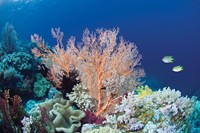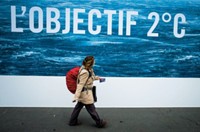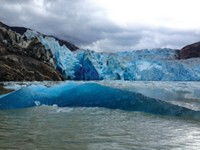Advertisement
Grab your lab coat. Let's get started
Welcome!
Welcome!
Create an account below to get 6 C&EN articles per month, receive newsletters and more - all free.
It seems this is your first time logging in online. Please enter the following information to continue.
As an ACS member you automatically get access to this site. All we need is few more details to create your reading experience.
Not you? Sign in with a different account.
Not you? Sign in with a different account.
ERROR 1
ERROR 1
ERROR 2
ERROR 2
ERROR 2
ERROR 2
ERROR 2
Password and Confirm password must match.
If you have an ACS member number, please enter it here so we can link this account to your membership. (optional)
ERROR 2
ACS values your privacy. By submitting your information, you are gaining access to C&EN and subscribing to our weekly newsletter. We use the information you provide to make your reading experience better, and we will never sell your data to third party members.
Environment
Thoughts While Diving
by Rudy Baum
November 24, 2008
| A version of this story appeared in
Volume 86, Issue 47
THREE DAYS AFTER the U.S. elections, my wife, Jan, and I left the country for a week of scuba diving on Bonaire, an island in the Netherlands Antilles off the coast of Venezuela.
Bonaire is about as far off the beaten track as one can get, especially for a news junkie like me. There are no newspapers other than advertising circulars. There’s television, but Jan and I tend not to watch broadcast news.
And scuba diving just lends itself to tuning out the outside world. It’s a relatively physically demanding activity—it’s amazing how much weight it takes to sink a human body in a 3-mm-thick wetsuit—so you go to sleep early and sleep well. There is also a fair amount of time during the day to sit back and reflect.
Diving also places you in an entirely different world, very much in touch with nature. Being underwater, swimming along a coral reef, is like taking a walk in a staggeringly beautiful park that you never knew existed until you started diving. I know, we’ve all seen videos of people diving along reefs and interacting with various sea creatures. Believe me, it really is not the same as being in the water with the reef and the fish and the turtles and rays and moray eels and octopuses.
Even on remote and pristine Bonaire—the underwater reef system is a national preserve—it is clear that human activity and human avarice are damaging our planet, both globally and locally. The water temperature in the Caribbean around Bonaire was 84 °F, about 2 °F warmer than it should be in early November. It doesn’t sound like much, but our guides said the warmer water temperatures over the past few years were putting significant stress on the coral. I’ve been diving only for two years, so the reef looks pristine to me, but old hands say the damage is obvious.
On one boat dive, someone who has been diving at Bonaire for many years asked to dive a site called “Black Forest.” Our divemaster said that the site is now simply called “Forest.” It turns out that the original name came from the unusually dense stands of black coral in the deep and wide crevices of the reef at that site. Mature black coral looks something like an 8-foot-tall, deep green, almost black, pine tree. Until recently, these stands of black coral grew to near the top of the reef. But the skeleton of black coral is prized for making jewelry, and the stands have been decimated by poachers down to about 70 feet, the practical limit of free-diving.
Perhaps I’m naïve, but I just don’t understand destroying a piece of nature that beautiful for any reason.
The results of the U.S. election were a topic of conversation among my fellow divers and something I pondered a bit during downtime between dives.
Even before the election was held, it was clear to me that, whether Barack Obama or John McCain won the presidency, the election of 2008 marked the end of Reaganism.
Reaganism was the dominant political philosophy in the U.S. for the 28 years since Ronald Reagan was elected President in 1980. It can be summed up as follows: Government is never the solution, it is always the problem; markets are always better at solving problems than government is. Reaganism reached its apotheosis during the Administration of President George W. Bush. It reached its end with the government’s massive and continuing response to the financial crisis that is still tearing apart the world’s economic system.
Obama’s victory was a definitive exclamation point marking the end of Reaganism. A majority of Americans now clearly believe that government action is required to solve many pressing problems—from chaos in the financial markets to climate change to the nation’s dysfunctional health care system—that markets simply cannot address.
Thanks for reading.
Views expressed on this page are those of the author and not necessarily those of ACS.





Join the conversation
Contact the reporter
Submit a Letter to the Editor for publication
Engage with us on Twitter